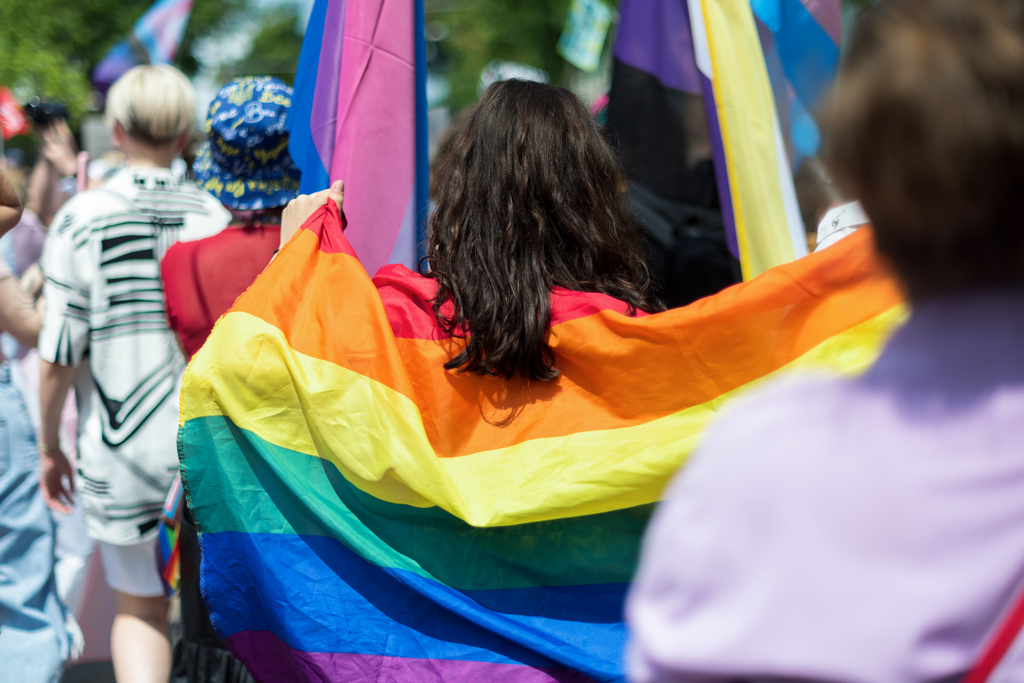Woke culture, a term quite popular lately, is a subject of heated debates and discussions in our society. It’s about fairness and equality, mainly focusing on addressing unfairness that happened in the past.
Although the woke culture is about making things fair, not everyone agrees on how to do that. That’s why some countries are keener on accepting wokeism than others. But how far did it reach? Find out below.

Wokesim Meaning
Wokeism is a social and political ideology striving for social justice and equity. Its main goal is to raise awareness of issues related to race, gender, and other forms of discrimination.
The central belief behind wokeism is that the social structures and institutions are oppressive toward disadvantaged groups (people of color, LGBTQ+, and people with disabilities, to name a few). Hence, they believe these institutions must be brought down to create a more equal society.
To achieve that, wokeism encourages changes in government policies to fix historical injustices. They also promote movements like anti-racism, which can involve discriminating against majority groups to benefit historically marginalized ones.
On the other side of the story, wokeism has been heavily criticized due to its focus on identity politics. Multiple politicians and community members stood against the woke culture because it tended to use outrage as a driving force.
Ultimately, wokeism is a complex set of ideas that wants to challenge and transform existing power structures to create a more just and equal society. However, its methods and consequences are a subject of intense debate and criticism.
Wokeism Around the World
Although wokeism is often described as a Western movement, it’s not limited to any specific region. Its presence is felt around the world, at least to some extent.
As such, wokeism has a global impact with supporters in every region. However, it’s important to note that the woke culture is interpreted differently in different countries.
United States
Wokeism strongly impacted discussions about race, gender, and social justice in the United States. Movements like Black Lives Matter and the push for gender equality are among the best examples of their influence.
United Kingdom
Wokeism in the UK has found its way into debates over colonialism and immigration. It started more intense conversations about correcting historical injustices.
India
India has seen discussions about caste-based discrimination and gender inequality. The Woke movement in India has focused on social hierarchies and oppression.
Canada
Wokeism in Canada raised awareness about the treatment of Indigenous communities and their rights.
These are only a few examples, with the woke culture reaching much further. However, it didn’t receive such a warm welcome in every part of the world.
Countries that are Opposing Wokeism
In dozens of countries, the woke culture wasn’t “greeted with open arms.” For example, this map of anti-LGBTQ+ laws shows countries that criminalize LGBTQ+ people with various sentences. Furthermore, you can preview the countries that don’t criminalize them but don’t allow same-sex marriage.
With the likes of Russia, Saudi Arabia, China, and many others, it’s clear that the woke culture didn’t find its way into their communities. Another interesting research by the World Justice Project explored discrimination around the world. Apart from sexual orientation, they also added race, gender, and ethnicity into the equation.
The results show that the countries that don’t support same-sex marriages are also showing other anti-woke signs. Still, there are some attempts to make changes in countries like Estonia, Japan, and Greece. Hence, changing certain policies that align with the woke culture is still possible.
However, countries that embraced wokeism still have their concerns. For example, some political figures and groups in the United States strongly criticized woke culture. They particularly opposed political correctness and the “cancel culture.”
Similar criticism came from the UK, France, and Australia. Therefore, although these countries embrace conversation, they have concerns and disagreements.
Wokeism Controversies
As we concluded, wokeism was heavily criticized by some due to controversies surrounding it. The main topics of debates regarding the woke culture are:
Freedom of speech:
Freedom of speech is one of the main concerns for the ones opposing wokeism. Certain woke practices, like the cancel culture and de-platforming, can discourage people from open dialogue. Because of their fears of getting “canceled,” they feel limited in expressing themselves.
Cancel culture:
Cancel culture is another major concern that people have with wokeism. It’s a practice of boycotting individuals who did or said something offensive according to woke standards. The scale of offensiveness is very individual, making it difficult to engage in proper conversation.
Identity politics:
Some people don’t like how woke culture promotes identity politics. Their main argument is that it focuses a lot on people’s backgrounds and characteristics. Critics say this can lead to divisions and make people focus on their differences rather than what they have in common.
Political divisions:
Woke culture can also make political divides even bigger. It often makes people feel like they’re on one side or the other. That can create more conflict between different groups of people.
Responses From Supporters
People who promote woke culture say it’s all about making society fairer. They believe it’s needed to fight against racism, sexism, and other unfair treatment. They also argue that wokeism did a great job of getting people to talk about these crucial issues.
Wokeism is a firm believer in holding people accountable. Their viewpoint states that canceling culture and calling people out for their actions can make a difference. It helps to ensure that people and groups are responsible for what they do, especially regarding issues that have been ignored for a long time.
Some see woke culture as part of a bigger change in how our culture works. They think that over time, societies naturally change, and the language and values we use to talk about things like racism and discrimination will change, too.
Final Thoughts
Woke culture has become an important part of our societies, finding both supporters and critics. It encouraged conversations about social justice and equality. However, it also caused debates about freedom of speech and identity politics.
Finding a balance between addressing historical injustices and maintaining open dialogue remains an ongoing challenge. The controversies around wokeism point out the complexities of making a social change while upholding individual rights. As societies evolve, finding common ground and respectful discussions are vital in addressing the pressing issues of our time.














